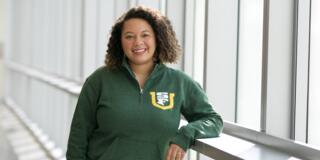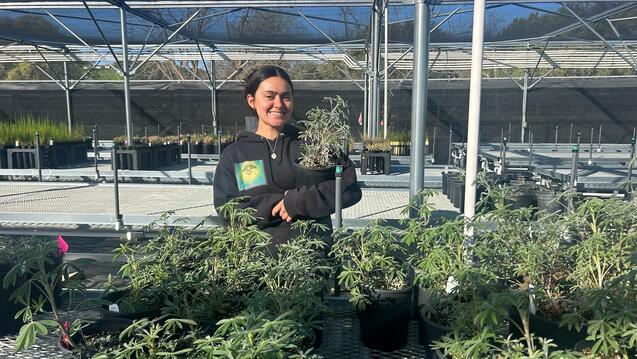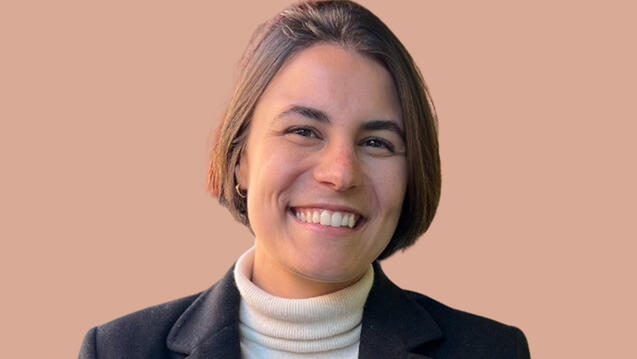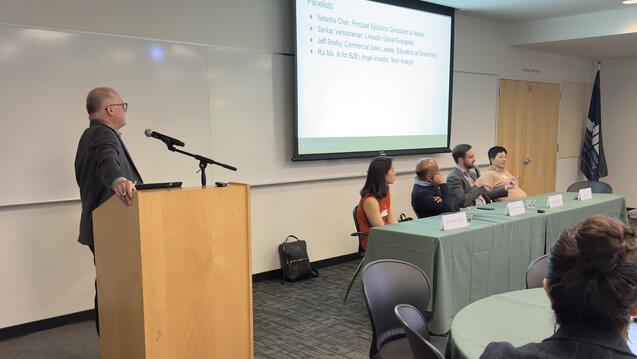Therapy Amidst COVID-19

“I first knew I wanted to work in the mental health field around the age of 12, after a positive interaction with a therapist at school,” remembers Cheryllynn Mena MA ‘18, a graduate of the School Counseling program.
“I worked in community organizing and youth empowerment for 10 years before I started graduate school, and I initially saw myself as a high school counselor. But as part of the School Counseling program I worked with elementary and middle school students. It shifted my perspective of kids and the importance of supporting social and emotional skill development at a young age.”
At the beginning of 2020, Mena was working as a bilingual mental health practitioner for the Marin County Department of Behavioral Health and Recovery Services / Youth and Family Services. As part of the school-based team, Mena worked at a middle school. “That shifted since the COVID-19 pandemic, both because of the move to distance learning, but also because there has been an increase in 0-5 year old children that need support.” Now, Mena is working with individuals between the ages of 0-17 and their families. Most of her work is providing individual and family therapy while collaborating with a variety of social services to support families.
Mena is also pursuing a specialization in working with children ages 0-5. “The training that I’m doing now is through UCSF Child Parent Psychotherapy. It’s thinking about how trauma impacts the child starting from utero, really thinking about generational trauma. A lot of the focus of this therapy is attachment - how to equip parents to help their children to co-regulate and use age-appropriate language to support the child in making meaning of their traumatic experience.”
Mena’s role as a county employee has further shifted her work during the pandemic. “I’m designated as a disaster worker and there has been a significant need for bilingual practitioners to be working on the ground.” Mena worked with the crisis unit to provide mental health services to adults and to support monolingual Spanish speakers to access COVID-19 testing. “I was grateful to have the experience to do disaster work and crisis work, and tie that into my work with kids - to gain the perspective of what the kids are experiencing.”
Mena has also used her role with the county to support families in accessing additional resources. “I’ve built so much with the families. We have family therapy sessions assessing other resources that might be needed, such as rent support or food assistance, and then I can work with the county to access those resources.”
A silver lining that came along with the pandemic is that Mena has continued working with her kids beyond the end of the school year. “It’s such a privilege to be in a position where I don't have to end when the school calendar ends. One thing that changed with COVID is that we are keeping our caseloads and I can follow kids and see them adjust to high school. It’s really an honor to see them grow over time and see families shift.”
When reflecting on how the pandemic has impacted her work, one thing stands out: flexibility. “It’s been a push to be flexible and creative,” says Mena. “How can I best deliver these services? I’ve gone to the extent of having a whole therapy session over text, or asking kids to send me a song of how they are feeling right now. I’m trying to think outside of the box in order to meet their needs.”
This flexible approach to therapy is also what Mena hopes to take beyond the pandemic. “I always think about how I can decolonize therapy practice. I think [the pandemic] has pushed me to think about how I actually meet the needs of those I work with - how I am community-rooted - and to me that means being flexible.” Therapy doesn’t have to look a certain way, says Mena. “This year has been a humbling experience as I’ve worked to think differently about what it means to be in service of families.”


